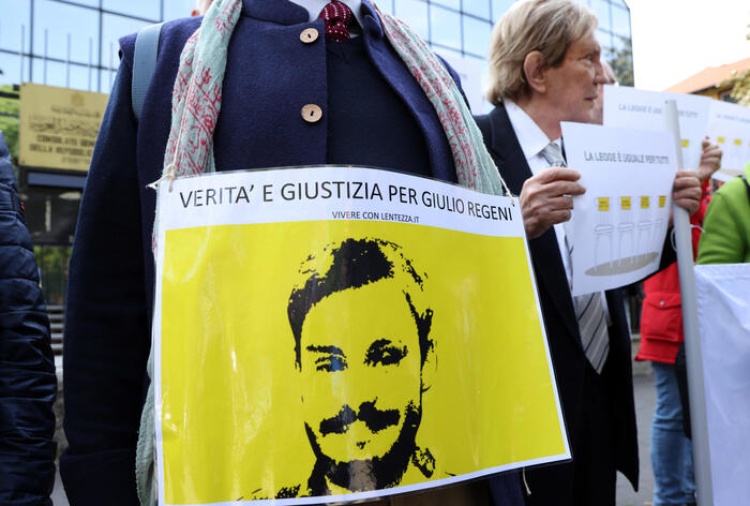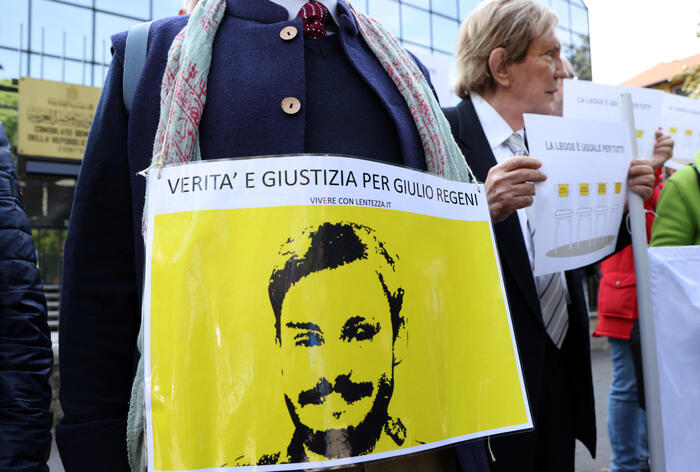The top court has been asked to rule on whether the trial can proceed without the four Egyptian security agents who have been charged with the murder and without any proof that they know they are on trial.
Efforts to notify the four officers – National Security General Tariq Sabir and his subordinates, Colonels Athar Kamel Mohamed Ibrahim and Uhsam Helmi, and Major Magdi Ibrahim Abdelal Sharif – have been unsuccessful and Egypt has not cooperated by handing over their contact details and legal abodes.
Regeni, a 28-year-old Friuli-born Cambridge University doctoral researcher, was tortured to death in the Egypt in 2016.
His work on Egyptian trade unions was politically sensitive and his body was so badly mutilated his mother only recognised him by the tip of his nose.
Regeni’s parents welcomed Wednesday’s decision.
“There is more hope now,” Paola and Claudio said via their lawyer Alessandra Ballerini.
“We hope that this is the definitive decision and that it is established that the trial can and must take place.”
The parents also called for a change in the law to ensure that “crimes of this seriousness do not go unpunished when states do not cooperate”.
The Rome preliminary hearings judge (GUP) who referred the case to the Constitutional Court said that Egypt’s refusal to cooperate was “anti-democratic”.
“The Egyptian authorities’ decision to subtract their citizens from Italian jurisdiction and from the establishment of responsibility is an anti-democratic, authoritarian decision,” the GUP said in the referral to the Constitutional Court.
“It effectively creates in Italy, a country that aspires to the principles of democracy and equality, inequality of treatment between Italian citizens and foreign citizens of other countries, who in similar cases would be put on trial”.
The GUP said this created a “no-fly zone” of “immunity not recognised by international law that, among other things, regards crimes that violate the universally recognised fundamental rights of man”.
ANSA











